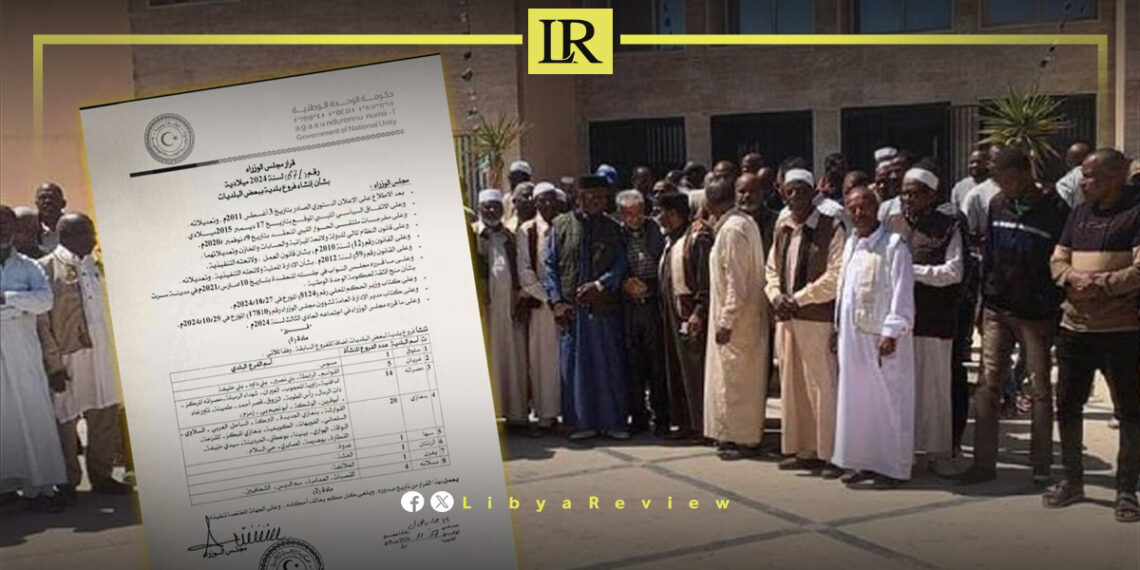Tawergha Municipal Council member Ismail Shaaban criticised Prime Minister of the outgoing Government of National Unity (GNU) Abdel-Hamid Dbaiba for issuing a controversial decision to annex Tawergha as a branch of Misrata Municipality, calling it legally and socially flawed.
In an interview with Fawasel, Shaaban stated, “This decision, which was made after Misrata’s municipal elections, effectively denies the residents of Tawergha their electoral rights.”
Shaaban revealed that the residents of Tawergha are currently discussing the matter and have expressed widespread opposition to the decision. “A public statement will be issued to address this matter,” he added.
The decision has stirred public and legal debates about its implications for the autonomy and electoral rights of Tawergha’s citizens, further highlighting the tensions between the two communities.
Libya has been in chaos since a NATO-backed uprising toppled longtime leader Muammar Gaddafi in 2011. The county has for years been split between rival administrations.
Libya’s economy, heavily reliant on oil, has suffered due to the ongoing conflict. The instability has led to fluctuations in oil production and prices, impacting the global oil market and Libya’s economy.
The conflict has led to a significant humanitarian crisis in Libya, with thousands of people killed, and many more displaced. Migrants and refugees using Libya as a transit point to Europe have also faced dire conditions.
The planned elections for December 2021 were delayed due to disagreements over election laws and the eligibility of certain candidates. This delay has raised concerns about the feasibility of a peaceful political transition.
Despite the ceasefire, security remains a significant concern with sporadic fighting and the presence of mercenaries and foreign fighters. The unification of the military and the removal of foreign forces are crucial challenges.


